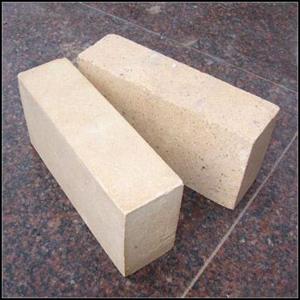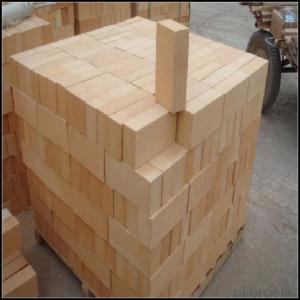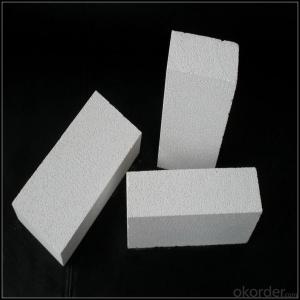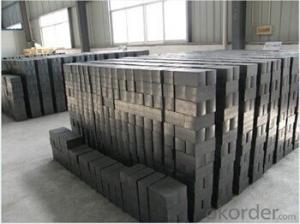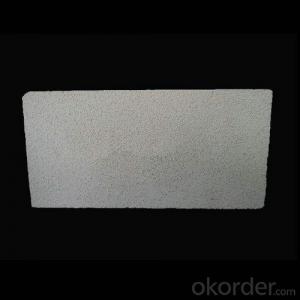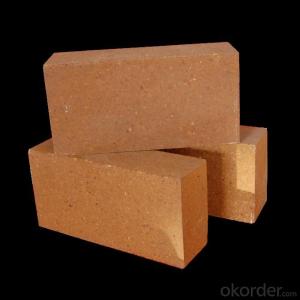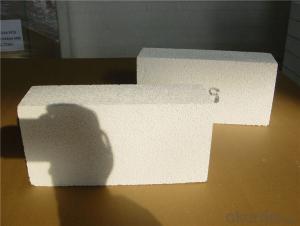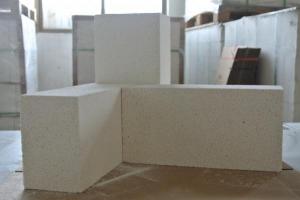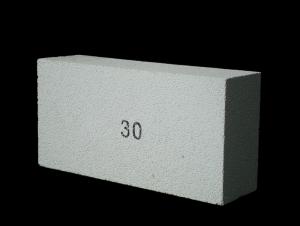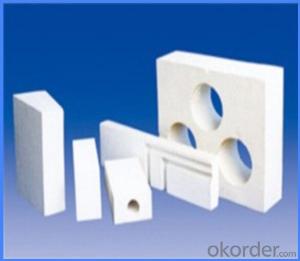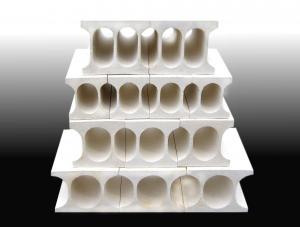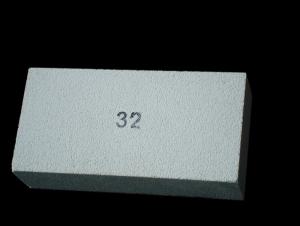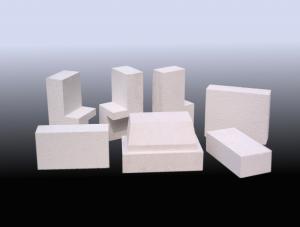High Alumina Brick For Pizza Oven
- Loading Port:
- China main port
- Payment Terms:
- TT OR LC
- Min Order Qty:
- 2 m.t
- Supply Capability:
- 1000 m.t/month
OKorder Service Pledge
OKorder Financial Service
You Might Also Like
Refractory Brick
CMAX firebricks are classified under temperature between 1300℃ to 1700℃, manufactured from high purity alumina clay by mixing, press-forming, drying, sintering and machining. Bricks contain carefully-graded organic fillers which are burned out during sintering to give a uniform controllable pore structure. This technique makes product feature low thermal conductivity and excellent heat insulation
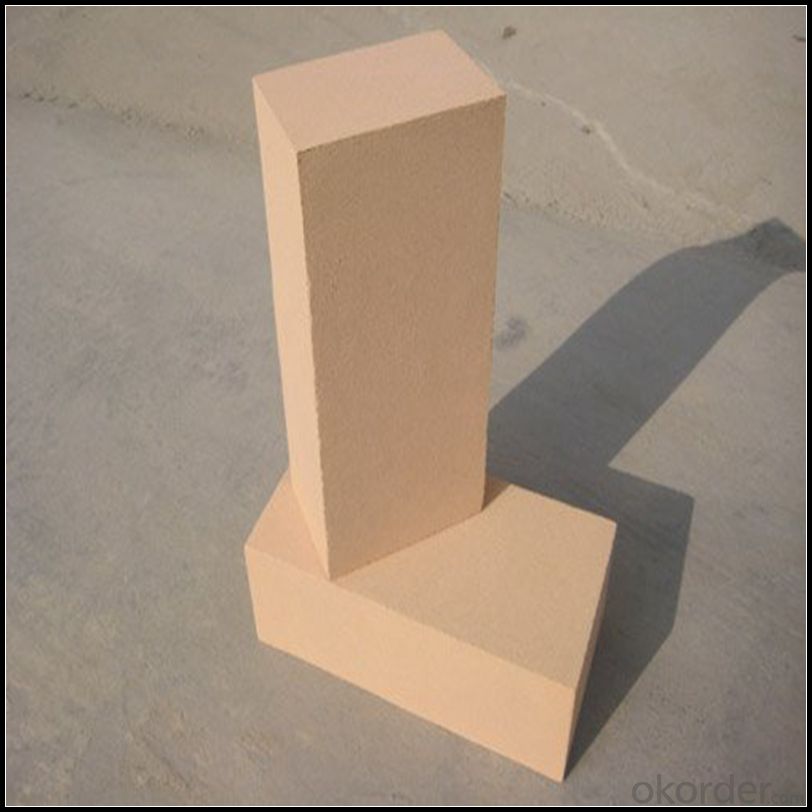
Features
Fireclay refractory brick is a main species of Aluminum silicate product, which adopt clay clinker as raw material, fireclay as bonding agent, the Al2O3 content from 30%~48%.
The refractoriness of Fireclay refractory brick from 1580 to 1770℃, which vary with the ratio of Al2O3 and SiO2
The fireclay refractory brick is faintly acid, whose acidity increasing with the content of SiO2 increasing, which has a certain resist erosion ability against acid slag.
Application
Normally used for Acidic slag furnace Lining, which is common refractory material of Blast furnace, Blast stove, Power boiler, Heating furnace, Rotary kiln, Ceramic and refractory material burning kiln.
Data Sheet
Classification Temperature (℉/℃) | 3000/1650 |
Bulk Density (g/cm3 ) | ≤1.0 |
Thermal Conductivity | |
800℃, W/m.K | ≤0.39 |
1000℃, W/m.K | ≤0.43 |
1200℃, W/m.K | ≤0.48 |
Reheating Linear Change (%) | 1550℃×12h |
≤0.9 | |
Chemical Composition (%) | |
Al2O3 | ≥75 |
Fe2O3 | ≤0.5 |
Packaging & Shipping
Packaging Details:Be packed in fumigated wooden pallets
Delivery Detail: 30 days after order

Our Services
Optimum solution and product supply of refractories for high temperature industries, such as iron steel, non-ferrous, petrochemical and building materials.
Engineering design, contract and consult for refractories, and civil architecture design.
Research, development, manufacture and sale of superhard materials.
R&D, manufacture and sale of special packing materials for export.
Inspection, supervision and arbitration of refractories.
Consultation and services in refractories information.
Training and cultivation of high-level talents in refractories profession
Sales Network

Company Information
CNBM (China National Building Material) Group is the largest comprehensive building materials group in China that in integrate scientific research, manufacturing and logistics into one entity. The largest building materials and equipment specialists in China. Upon State Council approval, today CNBM owned more than 300 subordinate manufacturing factories and servicing companies. There are 6 fully owned public listed companies and 11 partially owned with substantial shares public listed companies. In many of these fields, CNBM is playing the leading role in the building industry in the country.
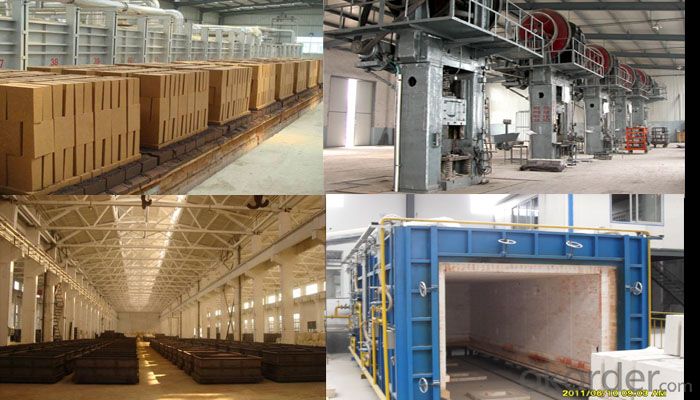
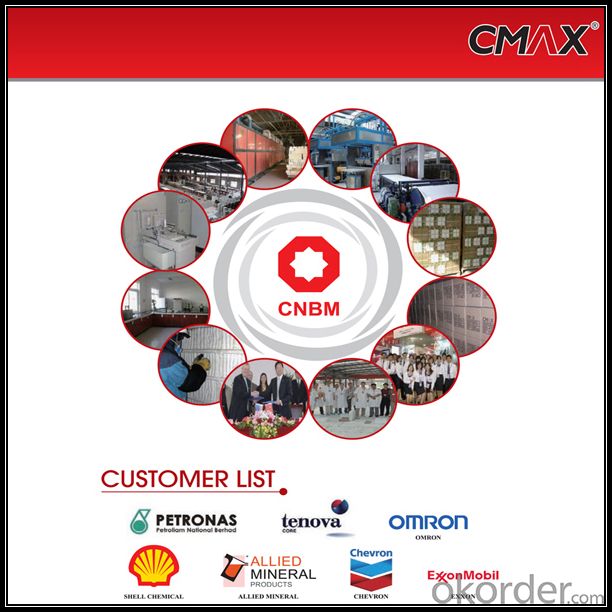
FAQ
1. Which products do you have?
We have all kinds of refractory brick, castable, mortar, cement, ceramic fiber products, etc.
Or you could browse our products to choose what you need.
2. Can you give me a brief introduction of the application of your products?
We are mainly specializing in the refractory materials in iron and steel, cement, glass, ceramics, petrochemical, electric power Industry, etc.
3. If I need your offer, what information do you need?
In order to choose suitable products, it will be appreciated to provide us the information, such us specification, technical data, order quantity, products application etc. If any question, please contact us freely.
- Q:Are insulating fire bricks resistant to nitric acid?
- Yes, insulating fire bricks are generally resistant to nitric acid due to their high refractory properties and chemical stability.
- Q:Can insulating fire bricks be used in hydrogen furnaces?
- Insulating fire bricks can be used in hydrogen furnaces, but it is important to note that not all types of insulating fire bricks are suitable for this application. Hydrogen is a highly reactive gas and can cause certain materials to degrade or react, leading to safety concerns and potential damage to the furnace. When selecting insulating fire bricks for use in hydrogen furnaces, it is crucial to choose bricks that are specifically designed for high-temperature and corrosive environments. These bricks should be made from materials that are resistant to hydrogen embrittlement and have low reactivity with hydrogen. Silicon carbide (SiC) and alumina-silica (Al2O3-SiO2) are commonly used materials for insulating fire bricks in hydrogen furnaces. These materials have good resistance to high temperatures and are chemically stable in the presence of hydrogen. It is also important to consider the density and porosity of the insulating fire bricks. Low-density bricks with high porosity are preferred for hydrogen furnaces as they provide better thermal insulation and reduce the risk of hydrogen leakage. Overall, while insulating fire bricks can be used in hydrogen furnaces, it is crucial to select the appropriate type of bricks that are specifically designed for high-temperature and corrosive environments, and have good resistance to hydrogen embrittlement and reactivity. Consulting with experts in the field and following the manufacturer's guidelines is highly recommended to ensure the safe and efficient operation of the hydrogen furnace.
- Q:Can insulating fire bricks be used in brick kilns?
- Insulating fire bricks are indeed capable of being utilized in brick kilns. These bricks are specifically crafted to possess high thermal resistance, rendering them an excellent option for insulating the walls of a brick kiln. With the ability to withstand exceedingly high temperatures, they assist in maintaining consistent heat levels within the kiln. Through the utilization of these insulating fire bricks, the kiln's heat loss is significantly reduced, consequently enhancing energy efficiency and diminishing fuel consumption. Furthermore, employing insulating fire bricks also serves to safeguard the outer layers of the kiln from excessive heat, thereby preventing any potential damage and extending the kiln's lifespan. All in all, insulating fire bricks are a suitable and highly effective choice for implementation in brick kilns.
- Q:Are insulating fire bricks resistant to high-velocity gases?
- Yes, insulating fire bricks are generally resistant to high-velocity gases. Insulating fire bricks are designed to have high thermal resistance and low thermal conductivity, which makes them ideal for applications where they are exposed to high temperatures and gases. They are able to withstand the impact and velocity of gases without getting damaged or compromised. Insulating fire bricks are commonly used in industrial furnaces, kilns, and other high-temperature environments where they need to provide insulation and protection against high-velocity gases.
- Q:Can insulating fire bricks be used for insulation in heat recovery systems?
- Yes, insulating fire bricks can be used for insulation in heat recovery systems. These bricks have high thermal resistance, low thermal conductivity, and can withstand high temperatures, making them suitable for insulating and retaining heat in heat recovery systems.
- Q:Are insulating fire bricks resistant to acids and alkalis?
- The resistance of insulating fire bricks to acids and alkalis may vary depending on their composition and manufacturing process. Typically, these bricks are made from materials like alumina, silica, or a combination of both, which offer excellent resistance to high temperatures and thermal conductivity. Moreover, these materials are chemically inert, meaning they do not react with acids or alkalis. Nevertheless, it is important to acknowledge that certain acids and alkalis can still cause slight degradation or corrosion over time, particularly if they are highly concentrated or used at elevated temperatures. Therefore, it is advisable to refer to the manufacturer's specifications or conduct specific tests to determine the bricks' resistance level to particular acids or alkalis. In conclusion, insulating fire bricks are suitable for applications involving exposure to acids and alkalis. However, it is always recommended to consider the specific requirements and consult experts or manufacturers to ensure that the bricks will perform adequately in the intended environment.
- Q:Can insulating fire bricks be used in brick kilns?
- Yes, insulating fire bricks can be used in brick kilns. They are specifically designed to withstand high temperatures and provide excellent insulation, making them suitable for use in brick kilns where heat retention is crucial.
- Q:Can insulating fire bricks be used for insulation in boilers?
- Yes, insulating fire bricks can be used for insulation in boilers. These bricks are designed to withstand high temperatures and are highly effective in retaining heat, making them suitable for insulating the walls and floors of boilers.
- Q:Are insulating fire bricks suitable for use in steel mills?
- Yes, insulating fire bricks are suitable for use in steel mills. Insulating fire bricks are made from lightweight materials that have high insulating properties, allowing them to withstand high temperatures and provide effective insulation. In steel mills, where extremely high temperatures are generated during the steelmaking process, insulating fire bricks are used to line furnaces, kilns, and other high-temperature applications. These bricks help to reduce heat loss, improve energy efficiency, and protect the steel mill equipment from excessive heat. Additionally, insulating fire bricks have good thermal shock resistance, which is essential in steel mills where rapid temperature changes occur. Overall, the use of insulating fire bricks in steel mills is a reliable and effective solution for maintaining high-temperature environments and optimizing the steelmaking process.
- Q:Can insulating fire bricks be used in refractory linings for blast furnaces?
- Yes, insulating fire bricks can be used in refractory linings for blast furnaces. These bricks have high insulating properties, which help to reduce heat loss and improve energy efficiency in the furnace. Additionally, they offer good thermal shock resistance and can withstand the extreme temperatures and harsh conditions within the blast furnace.
1. Manufacturer Overview |
|
|---|---|
| Location | |
| Year Established | |
| Annual Output Value | |
| Main Markets | |
| Company Certifications | |
2. Manufacturer Certificates |
|
|---|---|
| a) Certification Name | |
| Range | |
| Reference | |
| Validity Period | |
3. Manufacturer Capability |
|
|---|---|
| a)Trade Capacity | |
| Nearest Port | |
| Export Percentage | |
| No.of Employees in Trade Department | |
| Language Spoken: | |
| b)Factory Information | |
| Factory Size: | |
| No. of Production Lines | |
| Contract Manufacturing | |
| Product Price Range | |
Send your message to us
High Alumina Brick For Pizza Oven
- Loading Port:
- China main port
- Payment Terms:
- TT OR LC
- Min Order Qty:
- 2 m.t
- Supply Capability:
- 1000 m.t/month
OKorder Service Pledge
OKorder Financial Service
Similar products
New products
Hot products
Hot Searches
Related keywords
